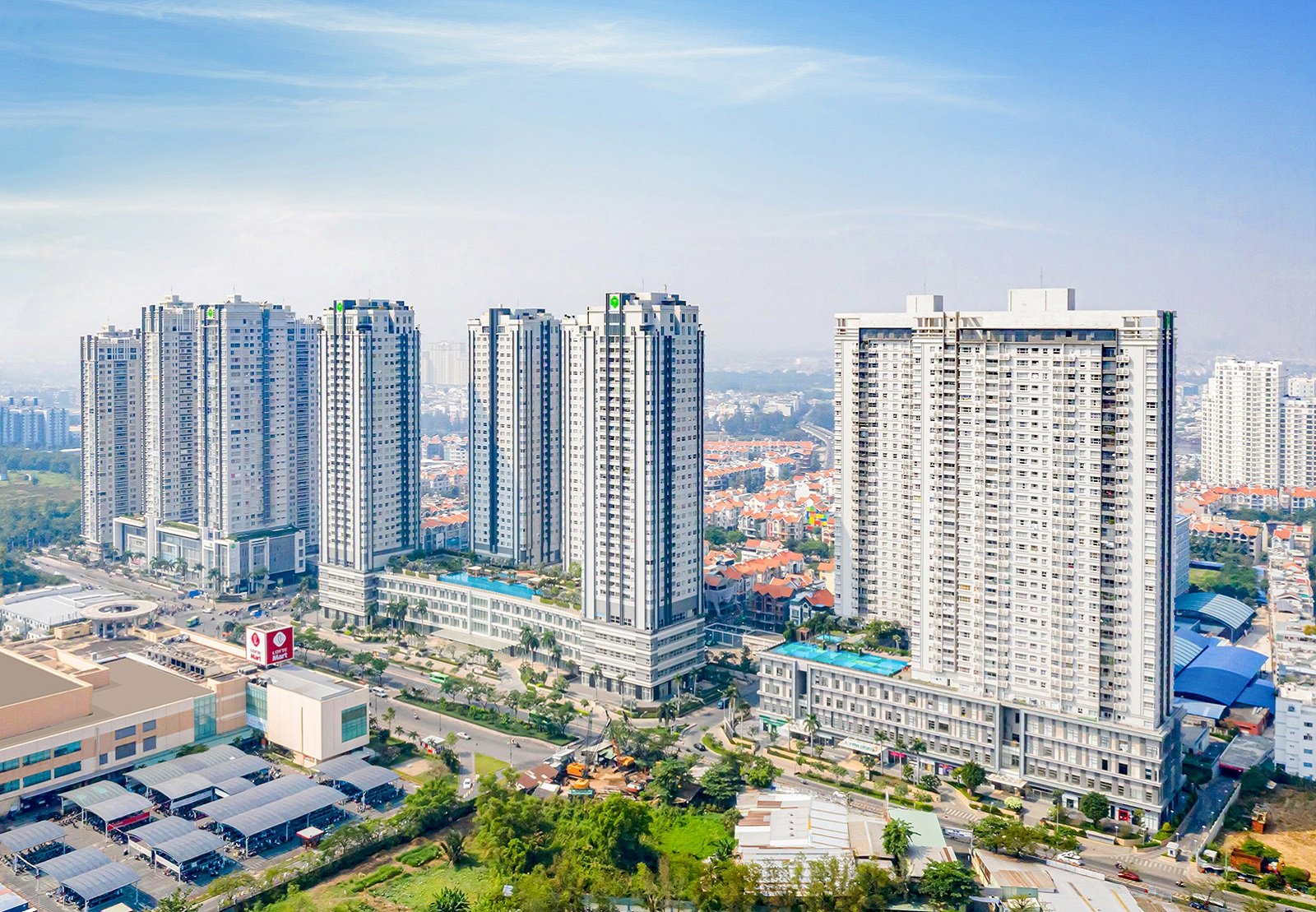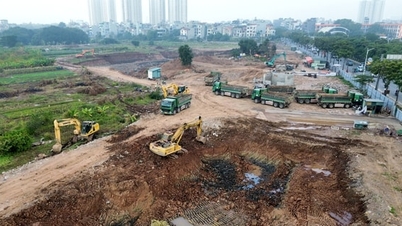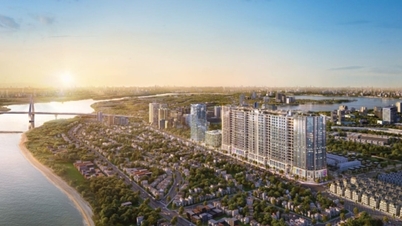Recently, the government has implemented many strong measures to support the recovery and breakthrough of the real estate market. In particular, Resolution 33 outlined numerous specific and detailed solutions to "rescue" the market. In reality, the market has received some positive signals, but it has not yet been able to achieve a breakthrough.
Speaking with a reporter from the Newspaper of Journalists and Public Opinion, Mr. Le Hoang Chau, Chairman of the Ho Chi Minh City Real Estate Association (HoREA), stated that the real estate market continued to face many difficulties in the first seven months of 2023.
How would you assess the real estate market from the beginning of 2023 to the present?
- Although the real estate market has shown signs of improvement following the government's measures to alleviate difficulties, overall, over the past seven months, the market has still faced many challenges, poor liquidity, and very limited supply.
The main reasons are unresolved legal issues and limited access to capital, several incidents in the second half of 2022 that affected investor confidence, and generally, some fundamental market problems that have not been addressed, such as legal issues, scarce supply, and supply-demand imbalances.
In reality, Vietnam has not yet fully exploited the potential and strengths of its real estate market. Industrial, tourism , and entertainment real estate is still concentrated in certain regions, failing to create widespread momentum and appeal across the country.

| Mr. Le Hoang Chau predicted that the Vietnamese real estate market would remain sluggish until the end of 2023, and could only recover and develop in a healthier, more transparent, and standardized manner from the second or third quarter of 2024 thanks to improvements in the legal environment; positive economic growth prospects; and the development of synchronized and modern infrastructure. |
Many investment market segments still face significant obstacles and challenges. Potential land resources have not been optimally exploited. Real estate in industrial parks, economic zones, export processing zones, and high-tech zones is still developing cautiously and slowly, with low occupancy rates.
The demand for housing is enormous for all social classes, especially for those with middle and low incomes, but the supply is limited.
Could you elaborate on the current market challenges?
Currently, there are three main difficulties and obstacles preventing the real estate market from achieving a breakthrough.
Firstly, there are difficulties related to policies and legal frameworks, such as difficulties related to land law, difficulties arising from planning laws, and some difficulties related to investment laws.
For example, regarding planning, some projects have approved 1/500 scale detailed plans that are inconsistent with the zoning and overall plans and are currently undergoing review, adjustment, and updating according to regulations.
Alternatively, many projects face difficulties, obstacles, and delays in implementation due to regulations on land valuation methods; in many cases, land use plans have been announced but there are no annual land use plans at the district level…
Secondly, there are difficulties regarding capital flow. Access to loan capital for real estate businesses remains challenging, primarily due to three issues: high interest rates, project legal issues, and market liquidity confidence. In reality, the actual interest rate is around 11-12% per year.
The recent reduction in interest rates by 0.5-2% is a significant effort by the government and the banking system. This move is having a positive effect on the economy and real estate businesses.
However, shortening the project duration by one year could help businesses save up to 12-15% on interest payments and capital costs. This doesn't even include savings on salaries, machinery, equipment, and other expenses for the entire year.
Strict regulations on risk control for real estate credit help to create a healthier market, aligning it more closely with actual needs and preventing price bubbles.
However, currently, the financial capacity of the vast majority of real estate businesses is limited, with low equity capital and operations primarily relying on bank credit, leading to difficulties in accessing credit.
The interest rates on loans under the 120 trillion VND social housing package are too high (8.7% for businesses, 8.2% for homebuyers per year), making it difficult for both developers and homebuyers.
Thirdly, there are challenges related to aggregate demand and market confidence. It can be seen that aggregate demand has decreased sharply in most segments, especially high-end housing, luxury tourism and resort properties, and land plots. Market confidence has also declined significantly.
According to a preliminary survey by the Vietnam Real Estate Association, two-thirds of project development companies have had virtually no new project development activities in the past year.
Meanwhile, real estate brokerage firms have cut approximately 50-70% of their staff. Investors, in general, have refrained from investing in the real estate market during this period.
So, what recommendations do you have to help the real estate market achieve a breakthrough?
- The most pressing issue currently is the need to increase aggregate demand and create a major source of supply for the Vietnamese real estate market. The greatest demand in the Vietnamese real estate market is currently for affordable commercial housing. Therefore, to increase aggregate demand, this type of housing needs to be developed rapidly, strongly, and diversely.
Nevertheless, the immediate priority is for the Government to effectively implement solutions to support the real estate market under the Socio-Economic Recovery and Development Program for 2023 and the 2023-2025 period.
In addition, it is urgent to complete the review of legal procedures for real estate projects that are behind schedule or have been suspended, and to resolve these issues definitively in 2022 and 2023 to facilitate the resumption of these projects and ensure the supply of goods to the market.
I also hope that the State will exempt construction permits for projects located in areas where detailed 1/500 scale planning has been approved, in accordance with point h, clause 1, Article 2 of Resolution No. 43/NQ-CP dated June 6, 2014, of the Government on some key tasks of administrative procedure reform in the formation and implementation of investment projects using land to improve the business environment.
Regarding credit financing, I believe commercial banks also need to increase support in terms of interest rates/fees for real estate transactions using electronic or cashless payments.
Furthermore, I propose the following lending interest rates for the real estate market during the period 2023-2025: For affordable commercial housing, I recommend a rate below 7% per year.
Social housing segment: For businesses, the proposed rate of return is below 6% per year; for homebuyers, it is below 4.5% per year. For the tourism and resort real estate segment, the proposed rate is below 9% per year. Finally, for the high-end residential real estate segment and other segments, the proposed rate is between 9-10% per year.
Orienting and encouraging the trend of issuing bonds to the public instead of private placements; continuing to strictly handle violations related to corporate bonds, forfeiture of deposits, and "double pricing" in real estate transfers to both increase deterrence and ensure the rights of investors, reducing budget losses; perfecting the legal framework to protect investors in corporate bonds and fund certificates.
Finally, I propose accelerating the issuance of property ownership certificates for tourism and resort real estate to secondary investors to quickly release tens of billions of USD in resources and stimulate the development of tourism and resort real estate, based on Decree No. 10/2023/ND-CP amending and supplementing a number of articles of the decrees guiding the implementation of the Land Law.
Thank you very much, sir!
Viet Vu (Editor)
Source


![[Image] Leaked images ahead of the 2025 Community Action Awards gala.](/_next/image?url=https%3A%2F%2Fvphoto.vietnam.vn%2Fthumb%2F1200x675%2Fvietnam%2Fresource%2FIMAGE%2F2025%2F12%2F16%2F1765882828720_ndo_br_thiet-ke-chua-co-ten-45-png.webp&w=3840&q=75)

![[Photo] Prime Minister Pham Minh Chinh receives Lao Minister of Education and Sports Thongsalith Mangnormek](/_next/image?url=https%3A%2F%2Fvphoto.vietnam.vn%2Fthumb%2F1200x675%2Fvietnam%2Fresource%2FIMAGE%2F2025%2F12%2F16%2F1765876834721_dsc-7519-jpg.webp&w=3840&q=75)
![[Photo] Prime Minister Pham Minh Chinh receives the Governor of Tochigi Province (Japan)](/_next/image?url=https%3A%2F%2Fvphoto.vietnam.vn%2Fthumb%2F1200x675%2Fvietnam%2Fresource%2FIMAGE%2F2025%2F12%2F16%2F1765892133176_dsc-8082-6425-jpg.webp&w=3840&q=75)

![[Live] 2025 Community Action Awards Gala](/_next/image?url=https%3A%2F%2Fvphoto.vietnam.vn%2Fthumb%2F1200x675%2Fvietnam%2Fresource%2FIMAGE%2F2025%2F12%2F16%2F1765899631650_ndo_tr_z7334013144784-9f9fe10a6d63584c85aff40f2957c250-jpg.webp&w=3840&q=75)































































![[Photo] Prime Minister Pham Minh Chinh attends the Vietnam Economic Forum 2025](https://vphoto.vietnam.vn/thumb/402x226/vietnam/resource/IMAGE/2025/12/16/1765893035503_ndo_br_dsc-8043-jpg.webp)

































Comment (0)